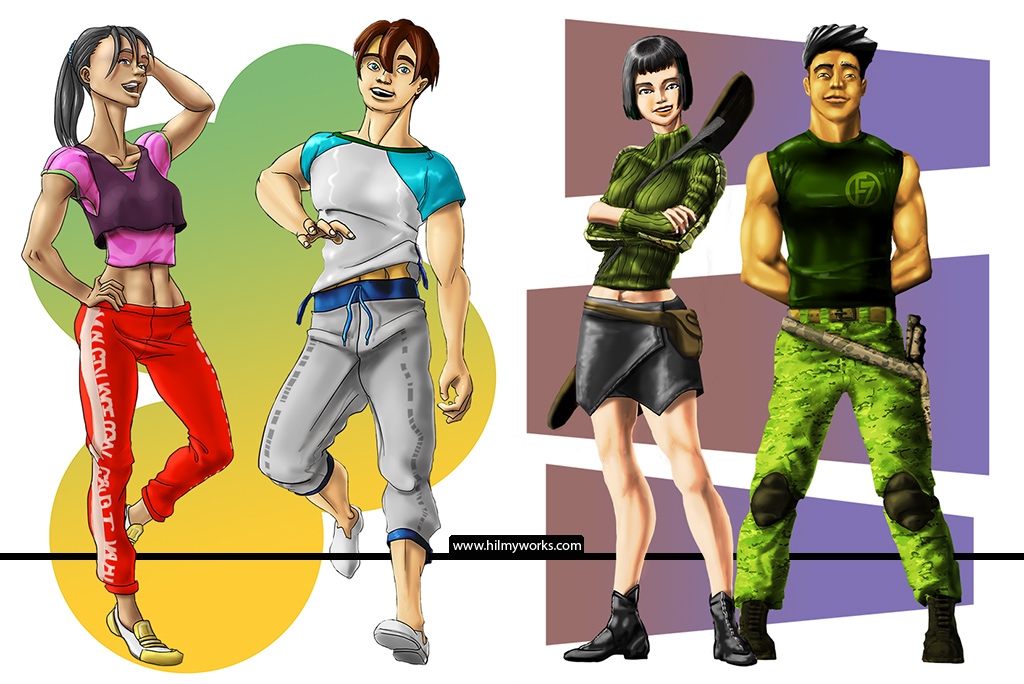Characters done in two different styles. Was supposed to finish this by the end of January, but eh, life.
Building a procedural city generator in Unity
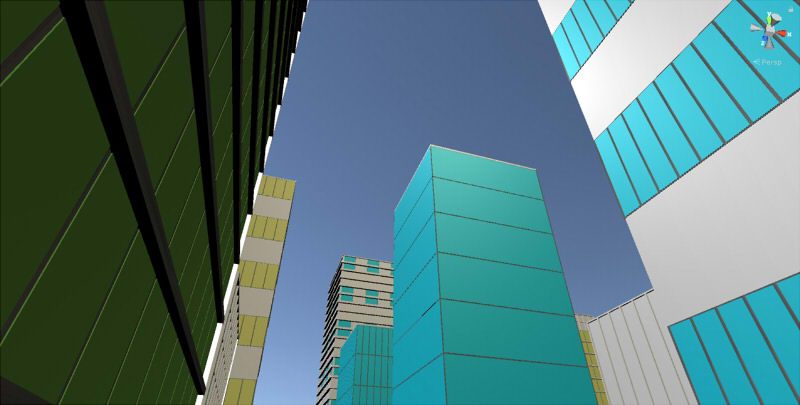
The next version on January 19th, 2018 added rules to window generation, and applied the edge algorithm around the windows. With materials assigned to the generated Gameobjects, the generated buildings became more attractive to the eye.
Building a procedural city generator in Unity
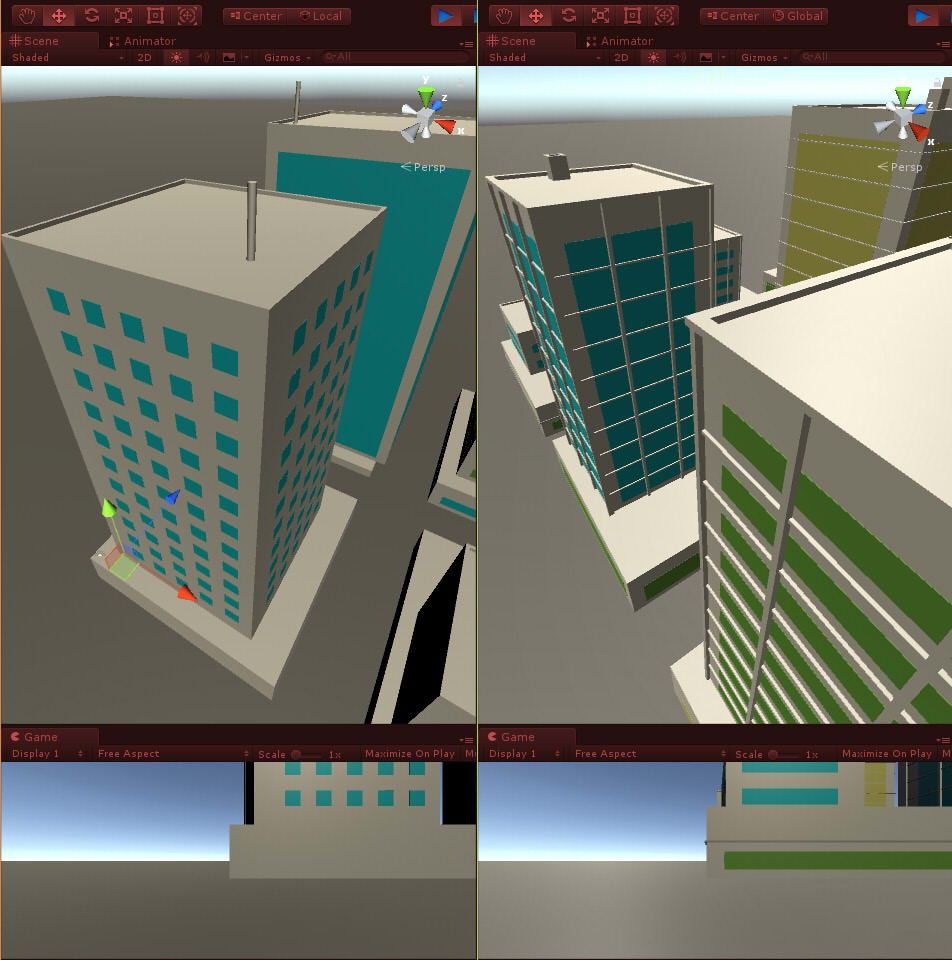
On January 12th, 2018 I added the ability to generate finer detail on the rooftop and grid-like facades on the building walls. The added edges on top of the building created a more believable look, and I was able to adapt the code to create randomized grid patterns on the walls.
The code still isn’t perfect; top building on the left has a definite overhang. Part of the work was figuring out where the rules failed in generating believable content and correcting as I go along.
Building a procedural city generator in Unity
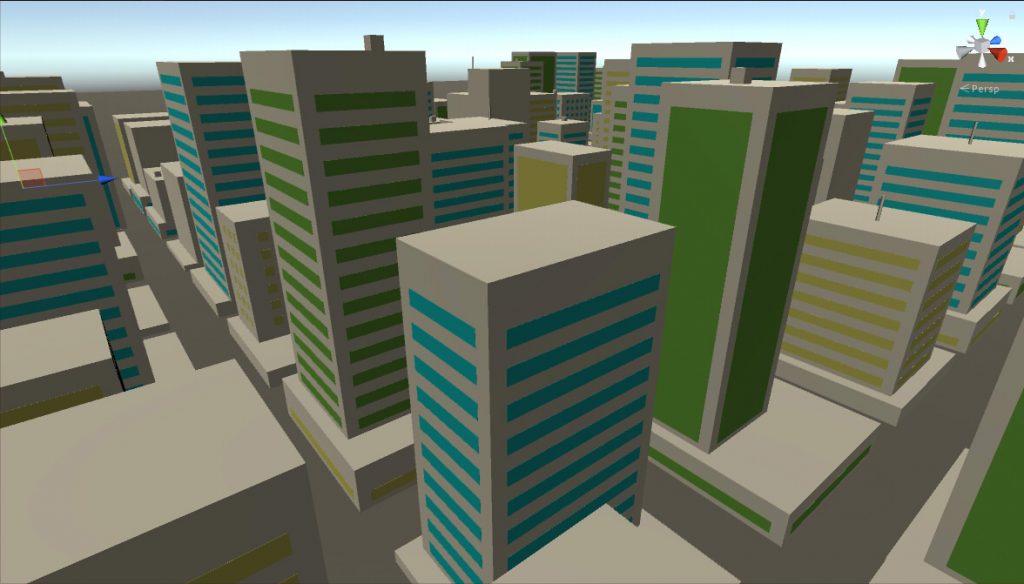
The next version on January 8th 2018 refined the arrangement of blocks to make the layout more realistic (e.g. adding believable corners so that the windows seem feasible), and added a ground section to the buildings. The ground section allowed me to define the area the building would occupy, and randomize the scale of the upper section of the buildings. The windows are now thin slices instead of blocks, thus they can be arranged within a defined wall region.
Incomplete teams: Managing student projects with incomplete skillsets
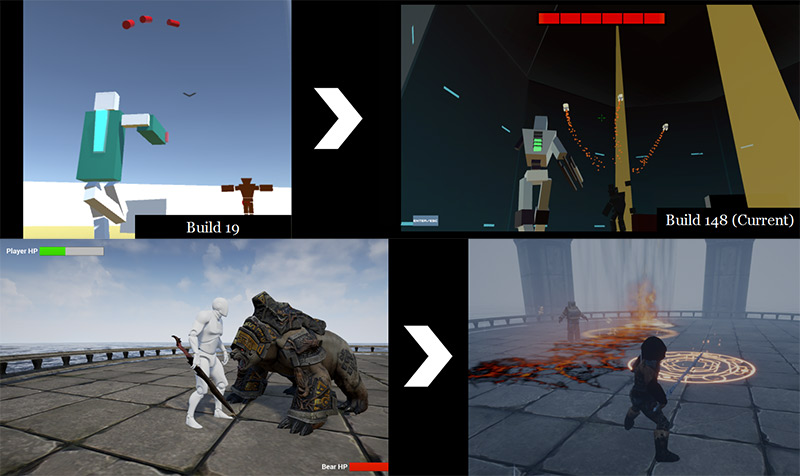 It happens: sometimes you get a student team that doesn’t have a major skillset usually needed to make a game. Not that it’s impossible, but it means the team mentor has to consider what to do to make sure they are able to get a game out.
It happens: sometimes you get a student team that doesn’t have a major skillset usually needed to make a game. Not that it’s impossible, but it means the team mentor has to consider what to do to make sure they are able to get a game out.
Now that’s actually not impossible: there are one-person games out there, and my previous research did focus on ensuring designers could survive a worst-case scenario of having no one to work with. With regard to student projects though, there’s a specific goal: the game has to showcase the students ability to conceive, plan, develop and finish a project.
Here are two student teams that had this problem that asked me for mentoring. Continue reading
Building a procedural city generator in Unity
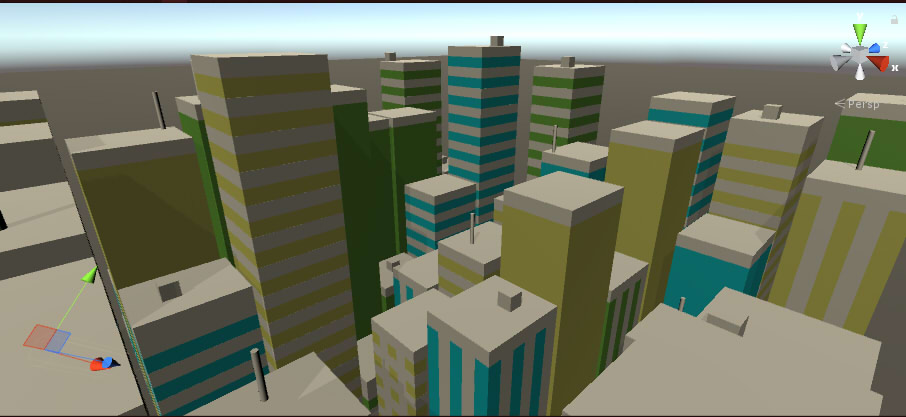
Was trying various projects with Unity to understand the engine back in 2016, so the procedural generation project was put on hold until late 2017. The version on December 4th, 2017 shown below was composed of stacked generated cubes of various materials, with a random placed object from a set of Gameobjects placed on top.
This was obviously non-performant, but my goal back then was to identify the rules I needed to establish to make a generated city believable. This version was to test if I could generate various window patterns on the wall surfaces and have the code randomly place objects as needed. There were observable issues – e.g. middle bottom building has windows that occur in one corner and not the other – but seeing issues like that meant I can figure out new rules to fix them.
Three Minute Answers: Az Samad on Becoming a Game Music Performer
Az Samad of www.azsamad.com has quite a background as a guitarist, composer and music teacher. He performed in Distant Worlds: Music from Final Fantasy in KL, Comic Fiesta and Game Start.
This interview was part of a set of interviews captured for a KDU event called Interplay to talk on the benefits of gaming for young people. Here, Az talks about how his experience with gaming led him to one of his career highlights: playing Final Fantasy music in the Malaysian Philharmonic Orchestra.
Three Minute Answers: Gwen and Sharon on Dealing with the Impostor Syndrome
The “Impostor Syndrome” is something commonly cited as a reason new developers feel uneasy about saying they do game development, or to even engage with those who do. I do feel the need to ask about it since as a lecturer, I noticed that lack of confidence in one’s ability to develop does impede a student’s ability to expand their abilities and network.
Here, Gwen and Sharon gave IMHO a pretty good answer on how does one deal with the feeling of having an Impostor Syndrome.
Three Minute Answers: Sharon and Gwen, audio designers of IMBA Interactive
Sharon Kho and Gwen Guo are two audio designers from IMBA Interactive, a company in Singapore specializing in creating sounds for games. Being GAMBIT graduates – a collaboration between the Singapore govt and MIT to create future game dev professionals – they talk on their journey from their personal interests up till becoming co-workers in this unique setup.
Here they talk about the development of their company IMBA: on how it was conceived, their progress from starting with very little capital, to a view of the foley setup they have in their studio.
Three Minute Answers: Kris Antoni of Toge Productions
Dear Canon G7X. You’re an awesome camera. Your tendency to auto-focus based on your whim instead of what’s right in front of you is a tad annoying though. The blurred interview subject is unfortunate and is something I won’t let happen again.
The interview subject is solid though, and the audio is clear. Kris Antoni of Toge Productions (Indonesia) talks about his journey being a game developer and also becoming a publisher to serve a need he noticed in Indonesia.
Kris was also instrumental in creating physical gamedev gatherings in Indonesia and pushed to make them bigger and bigger…. until it became the Game Prime event in Jakarta. That event was one I was invited to attend and met people like Kris.
